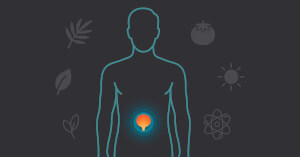
Selenium
Selenium is a trace mineral that acts as an antioxidant, supporting thyroid function, immune health, and protecting cells from oxidative damage.
Selenium is a trace element with powerful antioxidant properties, supporting immune function, thyroid health, and cellular defense against oxidative stress.
It is found in Brazil nuts, seafood, and eggs. Selenium also plays a role in fertility and detoxification processes in the body.
Selenium is used for thyroid support and immune defense. While beneficial in small amounts, high doses can be toxic, so proper dosing is important.
Other names & forms of Selenium supplement : selenomethionine, sodium selenite, selenium supplement, se mineral
Possible Benefits
As a key antioxidant cofactor, Selenium provides benefits for thyroid function, immunity, and healthy aging:
- Supports Hormonal Balance and Heart Health by aiding thyroid function and protecting cardiovascular tissues from oxidative stress.
- Helps bolster Immunity by enhancing white blood cell activity and viral defense mechanisms.
- Contributes to Anti-Aging by neutralizing free radicals and supporting cellular repair.
- May help maintain healthy Skin Health through its role in protein synthesis and antioxidant protection.
Side Effects
When you take Selenium, it’s important to be aware that, although it’s crucial for many bodily functions, too much can lead to unwanted effects. Pay attention to how your body responds, and if you notice any of the following, consider adjusting your dosage or speaking with a healthcare professional:
- Gastrointestinal upset, such as nausea, vomiting, or diarrhea
- Garlic-like breath odor and a metallic taste in the mouth
- Hair loss or brittle nails, indicating potential selenosis (selenium toxicity)
- Skin rash or unsightly dermatitis in sensitive individuals
- Fatigue, irritability, or mild neurological symptoms like tremors
- Mild changes in nail texture or discoloration
Interactions
Selenium may potentiate anticoagulants; if you're on warfarin, monitor INR. It can also interact with thyroid medications, check thyroid panels periodically.
Precautions
Before adding selenium to your routine, keep in mind that certain groups should avoid or adjust their dosage: pregnant or nursing women, individuals with thyroid or kidney issues, and anyone with recent surgery.
Check with your healthcare provider if you fall into any of these categories:
- Pregnant or breastfeeding women: Risk of excess selenium exposure for fetus or infant
- Children under 12 years old: Formulation and dosage may not be appropriate
- People with chronic kidney disease: Risk of selenium accumulation and toxicity
- Individuals with uncontrolled thyroid disorders: Selenium influences thyroid hormone metabolism
- Those with severe liver disease: The liver is key in selenium metabolism and elimination
- Patients who have recently had surgery or are scheduled for surgery: Possible interactions with certain medications or anesthesia
- Anyone taking strong anticoagulants without medical supervision: Potential interaction risk
Studies
These studies provide scientific insights into Selenium benefits:
A 2011 randomized trial in older adults with marginal selenium status found 200 µg/day selenomethionine for 6 months increased glutathione peroxidase activity by 28% versus no supplement.
A 2006 RCT in HIV‐infected patients reported that 200 µg/day improved CD4 counts and reduced hospitalization rates versus placebo .
A recent study found no change in cancer biomarker levels after 200 µg/day selenium for 9 months in prostate cancer survivors .
Large prevention trials show no clear benefit and potential risk at high doses, underscoring narrow therapeutic window.
Disclaimer: This page is for educational purposes and does not replace medical advice. If you're pregnant, have a condition, or take medication, speak with a qualified professional.









